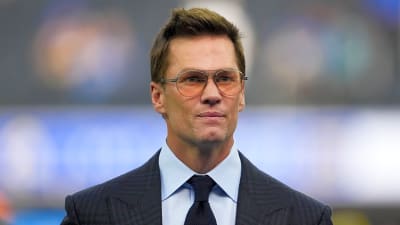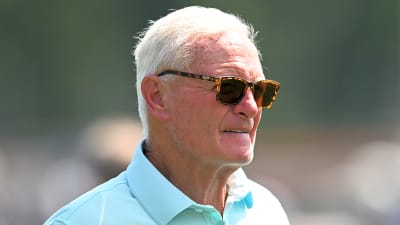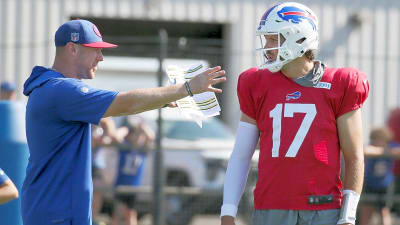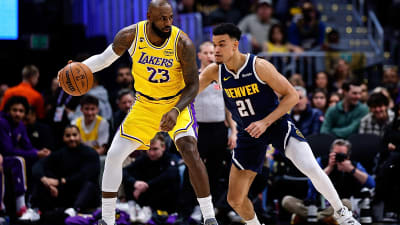
NFL players, coaches most affected by COVID-19 shutdown
NFL coaches and other team personnel are allowed back to their team facilities, but because of the COVID-19 pandemic, actual football practices will likely not begin until training camp in late July. The pandemic also has prompted the league to prevent any team from leaving its facility for camp. Here are the players, coaches and groups who will be most affected by the NFL's new reality.
QB Tom Brady, Buccaneers
Brady landed in a promising situation in Tampa Bay, where his targets will be Pro Bowl wide receivers Mike Evans and Chris Godwin and former Patriots wingman Rob Gronkowski. But the transition from Josh McDaniels’ system to Bruce Arians’ will be much more difficult for Brady now than, say, a year earlier, as the two-plus months’ worth of OTAs and minicamp would have been critical to Brady acclimating to a wildly different system. At 43, going straight into training camp will raise Brady’s degree of difficulty at an age when no quarterback has ever been a full-time starter.
Carolina’s coaching staff
Matt Rhule signed a seven-year contract to coach the Panthers; he has plenty of time to build. But the former Baylor and Temple coach is light on NFL experience as are his offensive and defensive coordinators (Joe Brady and Phil Snow). Carolina’s top three coaches have seven combined years of NFL coaching experience. Of those, only Snow — whose three-year run as Lions linebackers coach ended after Detroit’s 0-16 season in 2008 — has been an NFL position coach. Rhule and his top staffers missing a traditional offseason will make for an eye-opening training camp.
Jadeveon Clowney, free agent edge defender
Among this year's non-franchise-tagged edge-rusher contingent, Clowney profiled as the top prize. The former No. 1 overall pick's first trip to free agency will almost certainly not produce the $20 million-per-year contract he initially sought, and the inability of free agents to visit teams has played into Clowney’s unemployment. Also, years of knee issues and last season's groin injury have raised medical questions. When Clowney does sign, he will likely secure less guaranteed money than Robert Quinn ($30M), Dante Fowler ($29M) and Shaq Lawson ($22M); none is as talented as Clowney.
If Clowney signs a one-year deal, he will re-enter free agency at a time when the salary cap could decrease for the first time in 10 years. After playing on a fifth-year option in 2018 and the franchise tag last year, Clowney entering 2021 without a long-term deal represents a glitch in the NFL’s system.
Franchise-tagged performers
Fourteen teams used the franchise tag this year — the most since 2012 — and the Cardinals transition-tagged running back Kenyan Drake. Cowboys quarterback Dak Prescott, Bengals wideout A.J. Green, Titans running back Derrick Henry and Chiefs defensive tackle Chris Jones are among the most notable tagged players. Other than Green, none in this group has ever signed a lucrative extension. Being kept off the market now — in advance of a 2021 offseason when the salary cap could drop because of a fan-less or fan-limited 2020 season — represents bad timing.
Teams will be reluctant to authorize mega-extensions for some of these players, leaving them with no guaranteed money beyond 2020 and potentially bound for free agency on a buyer's market.
Cornerback Jeff Gladney, Vikings
The Vikings will count on their first-round cornerback to play a key role in 2020. But as part of one of the NFL’s more complex defensive systems, Gladney missing out on the offseason reps in Mike Zimmer’s defense figures to be critical. The TCU prospect will arrive in Minnesota amid a secondary overhaul, with the Vikings having cut Xavier Rhodes and allowed Trae Waynes and Mackensie Alexander to leave in free agency. More will be asked of Gladney than it was of Waynes, Alexander or 2018 first-rounder Mike Hughes.
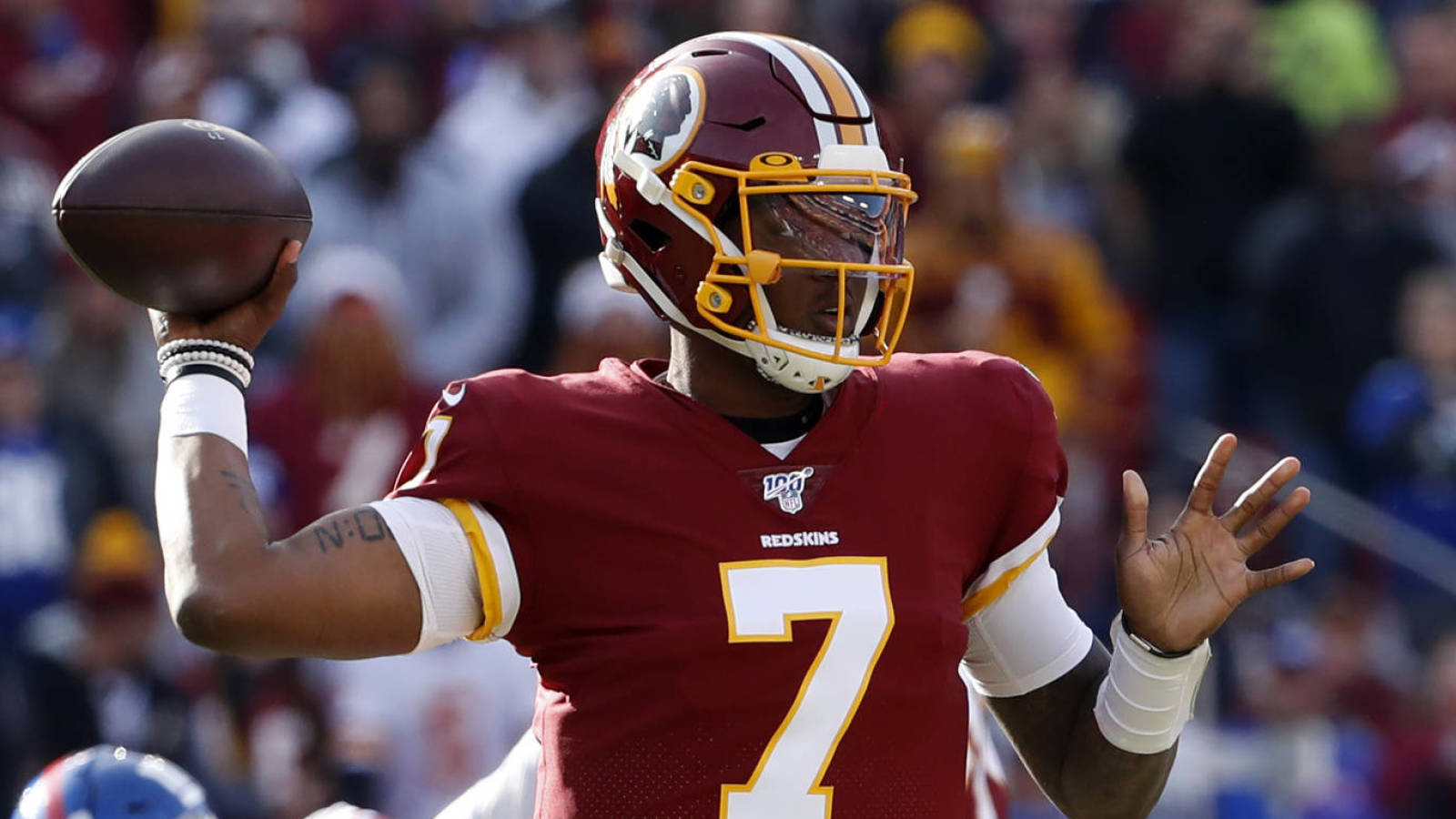
QB Dwayne Haskins, Redskins
Haskins arrived in Washington a first-round pick following a 50-touchdown-pass sophomore season at Ohio State. After ranking last in Football Outsiders’ QBR metric — in a bad situation — as a rookie, the Redskins quarterback may already be in prove-it territory. Washington fired pro-Haskins team president Bruce Allen. New head coach Ron Rivera since hired ex-Panthers staffer Scott Turner to be his offensive coordinator and traded for a quarterback — Carolina 2019 starter Kyle Allen — who knows Washington's new system. The team remains thin at the skill positions, and Haskins has missed crucial offseason reps. The once-coveted prospect looks set for an uphill battle.
QB Justin Herbert, Chargers
Already labeled a boom-or-bust talent, Herbert missing his rookie offseason should be a concern for both his early-career trajectory and the Chargers’ near-future contention hopes. Scouts Inc.’s No. 24-rated prospect went sixth overall because the Bolts were desperate for a quarterback after severing ties with Philip Rivers. But Herbert was already expected to need developmental time before a missed offseason was a certainty. It's conceivable the Chargers' 2020 starter for the entire season will be Tyrod Taylor, whom Baker Mayfield supplanted in Cleveland three games into the 2018 season.
That is a low-ceiling proposition for a team without many weaknesses elsewhere. Needing to make a splash in Los Angeles, the Bolts appear to have picked the wrong year for a quarterback transition.
Immunocompromised players
This obviously resides in a different realm of coronavirus-related concerns, but this issue will come up when more players test positive. So far, Broncos linebacker Von Miller and Rams center Brian Allen are the only known NFL players to contract the virus, and both recovered. But when 90-man rosters and the dozens of coaches and additional personnel convene at training camps, contraction risks will increase. But as it stands now, a player testing positive is unlikely to pause the season like it did the NBA's in March.
While most players would likely recover like Miller and Allen did, common sense indicates the league’s near-3,000-man talent base includes some immunocompromised players who would be at greater risk of virus-induced complications. A league frequently in PR hot water would enter a new area of trouble if one of its higher-risk players contracted the virus.
Offensive coordinator Tim Kelly, Texans
Obscured by head coach-GM Bill O’Brien’s many scrutinized transactions is his ceding of play-calling duties to Kelly. A few weeks after the head coach gave his 33-year-old OC the reins, O'Brien traded three-time All-Pro wideout DeAndre Hopkins and then overpaid for wideouts Randall Cobb and Brandin Cooks, leaving Kenny Stills in limbo. Kelly, who was the Texans’ tight ends coach two years ago, must make this moving-parts equation work. A seven-year Texan, Hopkins was Deshaun Watson’s only on-field constant. Beginning a play-calling run without him — and with O’Brien shuffling cogs in and out — will be more challenging after a condensed offseason.
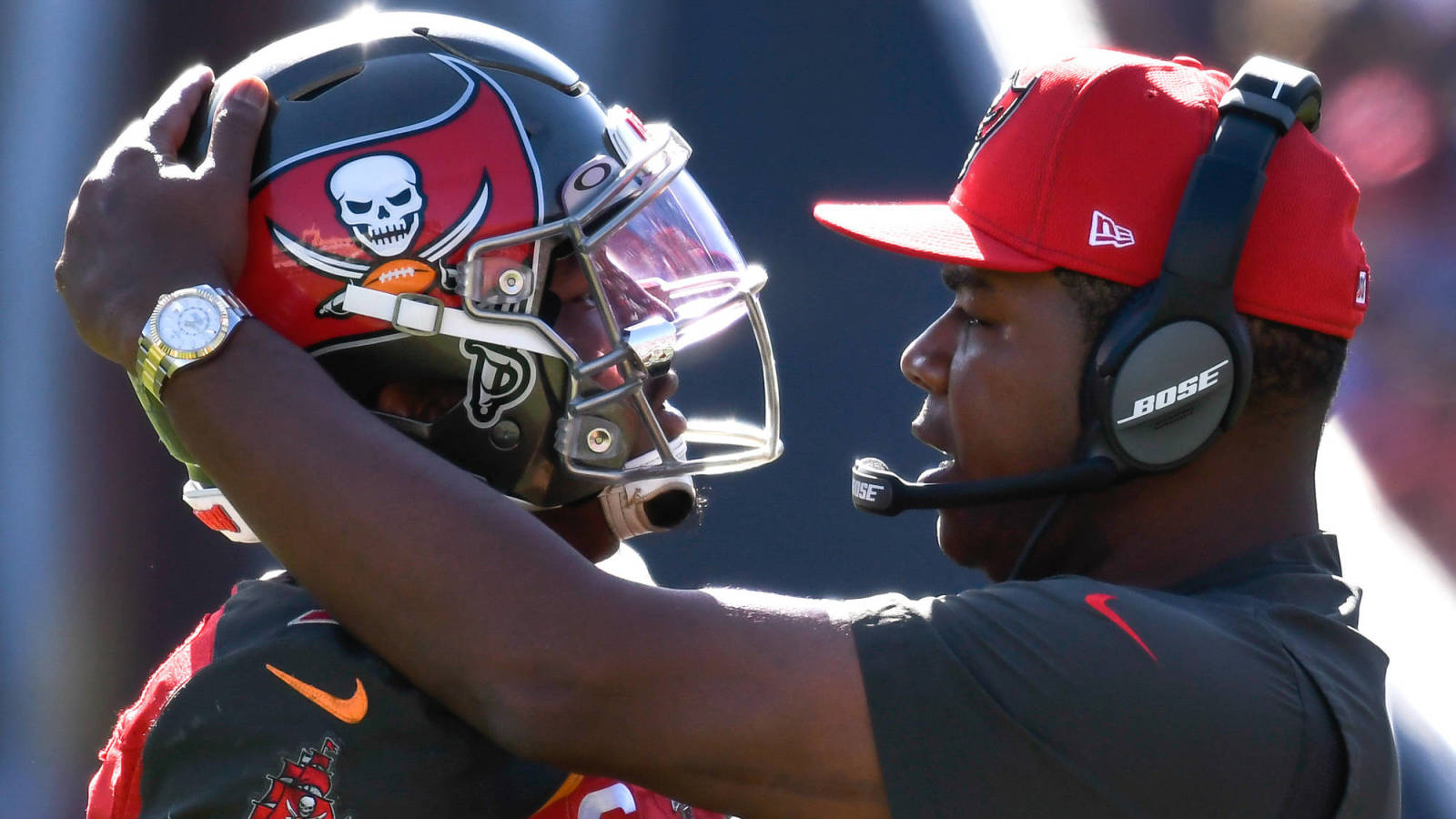
Offensive coordinator Byron Leftwich, Bucs
Blessed with an incredible opportunity of calling plays for an offense featuring Tom Brady, Rob Gronkowski and two Pro Bowl wideouts, the Buccaneers’ offensive coordinator also profiles as a fall guy, and missing extensive offseason time will not help. Bruce Arians is not going anywhere, and Brady’s two-year contract is fully guaranteed. Leftwich was at the controls when the 2018 Cardinals ranked last in scoring and yardage, and the former NFL starting QB — who is three years younger than Brady — has called plays for less than two seasons. With five prime-time games on Tampa Bay’s schedule, Leftwich will encounter a megawatt spotlight compared to his previous work as a coach.
Head coach Anthony Lynn, Chargers
The fourth-year Chargers coach may be safe, but if 2020 unfolds like 2019 did — when the Bolts finished 5-11 — there will be calls for Lynn’s job. He is 26-22 with L.A. and enters the season with a strong roster everywhere but at quarterback. Lynn does not call the Bolts' plays, and while the optics of a team firing the league’s only offense-based black head coach would be poor, the Chargers fortifying their roster with veterans and seeing quarterback play drag them down would put Lynn under a microscope. He and offensive coordinator Shane Steichen being prevented from working with Herbert onsite until camp will put the Bolts behind when they gather in late July.
QB Baker Mayfield, Browns
Saddled with a bad combination of poor tackle talent and an overmatched head coach, the 2018 Offensive Rookie of the Year runner-up took a major step back last season. Kevin Stefanski and offensive coordinator Alex Van Pelt are already Mayfield’s fourth head coach-OC tandem. Cleveland’s latest first-round quarterback really could have used this offseason to work with his coaches and teammates at the team's Berea, Ohio, facility. Stefanski faces a pivotal task come training camp, with the Browns’ roster improvement mattering little if Mayfield is not ready.
QB Cam Newton, free agent
In a normal offseason, a team would have traded for Newton and installed the former MVP as its starter. But the nine-year Panthers starter has been a free agent for nearly three months. Teams’ inability to examine players recovering from injury have Newton seemingly down to either accepting a backup job or waiting for a starter to go down in July or August. The shoulder and foot maladies the 31-year-old passer battled the past two years have cost him at an unfortunate time.
While the three-time Pro Bowler ranks 30th in Total QBR since his Super Bowl 50 disappointment, he is better than several teams’ starters. Being in this spot amid COVID-19 represents one of the weirder circumstances a franchise-caliber quarterback has encountered in some time.
WR Jalen Reagor, Eagles
With an expensive and questionable receiving corps, the Eagles need their first-round pick to contribute immediately. Reagor was not viewed as a pro-ready product like Jerry Jeudy and CeeDee Lamb. Instead, the explosive TCU receiver turned in an uneven, drop-plagued season last year. Reagor submitted a 1,000-yard slate in 2018; the Eagles need that version of their first-rounder to help their cause in a loaded NFC. Alshon Jeffery is a candidate to start the season on the physically unable to perform list, and the now-33-year-old DeSean Jackson missed 13 games last season. These circumstances present a challenge for Reagor in this truncated offseason.
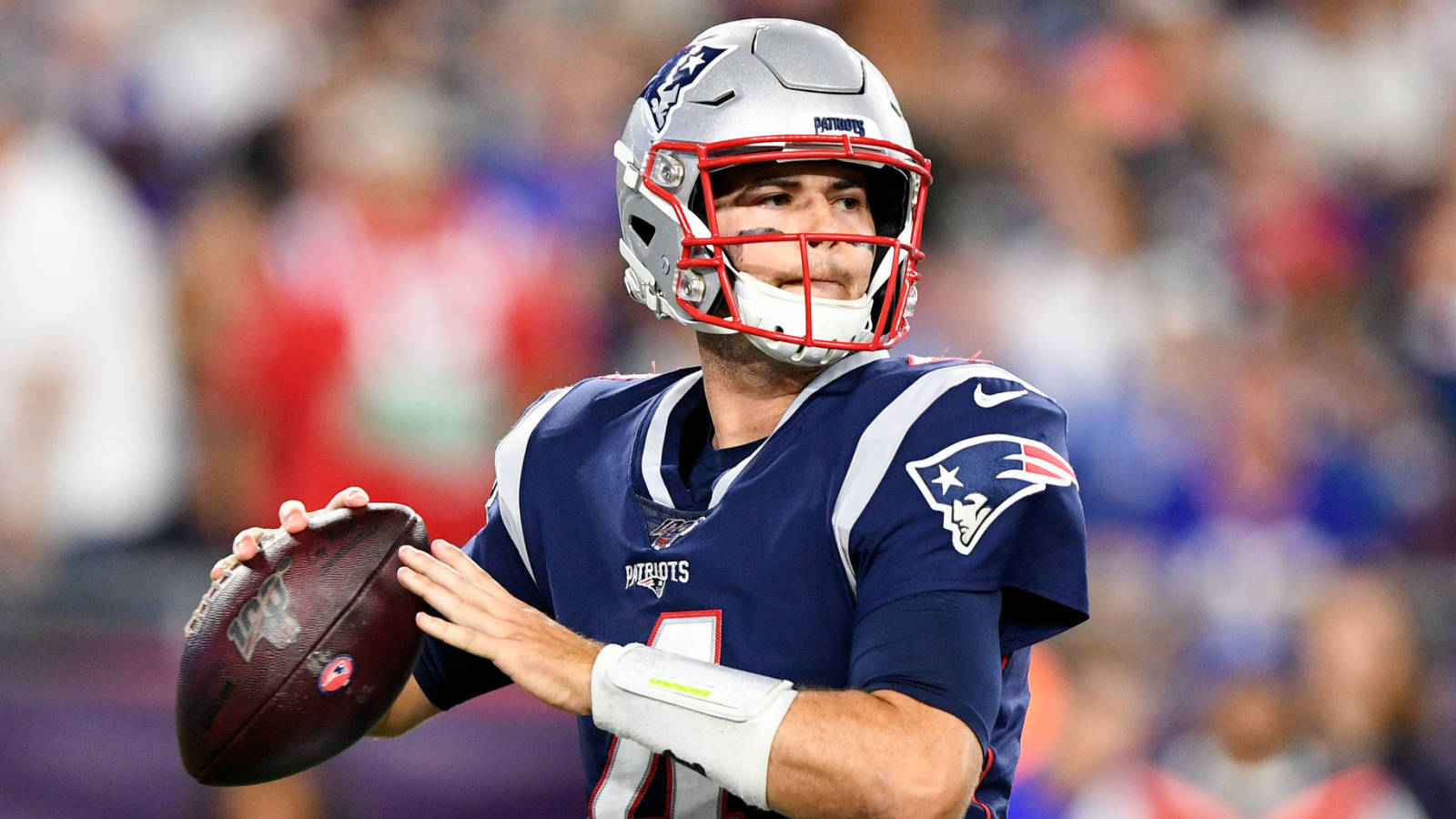
QB Jarrett Stidham, Patriots
With the Patriots steering clear of veteran starters Andy Dalton and Jameis Winston, Tom Brady’s successor looks to be determined by a battle between journeyman Brian Hoyer and a 2019 fourth-round pick. The Pats thought enough of Stidham to cut Hoyer before last season, but the former has four regular-season passes on his resume — and one resulted in a pick-six. Stidham will be worse off after missing out on the extensive offseason training he would have received after Brady’s exit. Because of COVID-19, Hoyer’s odds of obtaining the starting job almost certainly increase.
Rookie offensive linemen
Rookie O-linemen already face a steep learning curve. Coming from a college game that’s training fewer NFL-ready blockers, rookie classes — thanks to the 2011 CBA — have limited windows to work in contact-permitted settings compared to in previous eras. With the recent CBA that further restricts padded practices and an entirely virtual offseason, rookie blockers’ developmental arcs will be reshaped. At least four first-round tackles are expected to start — including the Bucs' Tristan Wirfs, pegged to be Tom Brady’s right tackle. Other rookie linemen will have significant roles. Expect lots of growing pains.
Rookie-contract players eligible for extensions
Members of the 2016 and ’17 draft classes will experience effects from the pandemic. While Patrick Mahomes and Deshaun Watson are “name your price”-level talents and thus exempt, COVID-19 will affect 2016 first-rounders stuck on fifth-year options and extension-eligible 2017 draftees. Teams are already tabling extension talks because of the threat a fan-less season poses to the 2021 salary cap. The salary ceiling dropping from its $198M 2020 perch will hijack players’ expectations in next year’s free agency and could lead to more teams adjusting their payrolls accordingly to carve out space for franchise tags. Either scenario would be bad for players of a certain age.
Senior citizen coaches (and those with health issues)
Bruce Arians, Bill Belichick and Pete Carroll represent the over-65 group of head coaches. Offensive coordinators Chan Gailey (Dolphins) and Tom Clements (Cardinals) are also senior citizens. Bears defensive coordinator Chuck Pagano, 59, survived cancer in 2012. Vikings OC Gary Kubiak was hospitalized during the 2013 and ’16 seasons; Arians was hospitalized in 2016. Protecting the older head coaches, coordinators, position instructors and those with health issues — who face greater risks of developing more severe issues if they contract COVID-19 — must be addressed when the NFL and NFLPA discuss this year’s coronavirus-redefined working conditions.
The NFL will need new on-field guidelines for coaches during this unusual season and may need a plan in the event some coaches with preexisting conditions opt not to coach in 2020.
Tight ends
This will be a good year to make sure your fantasy team secures the services of one of the NFL's top tight ends. Many teams made changes that will affect young tight ends and/or acquired veterans before learning they could not coach them in person for months. Thirteen teams will likely deploy a new starting tight end; three more hired a new play-caller. A third of the league will rely heavily on first-, second- or third-year tight ends, likely creating more inconsistency at an increasingly undependable position.
Defensive end Olivier Vernon, Browns
Vernon is entering the final season of a five-year contract, and his $15.25 million salary tops the team’s payroll. None of Vernon’s money is guaranteed yet. The ninth-year pass rusher may not only be at risk of being released if the Browns convince Clowney to sign, but if the NFL and NFLPA determine a cap reduction is imminent, teams could look to shed non-guaranteed big salaries in an effort to prepare themselves for that approaching reality. The former Dolphin and Giant defender registered only three sacks last season and will turn 30 in October.
More must-reads:
- Key issues facing all NFL teams entering summer
- Why these coaches are on hottest seats in NFL
- The 'NFL tight end receiving leaders' quiz
Breaking News
Trending News
Customize Your Newsletter
 +
+
Get the latest news and rumors, customized to your favorite sports and teams. Emailed daily. Always free!
